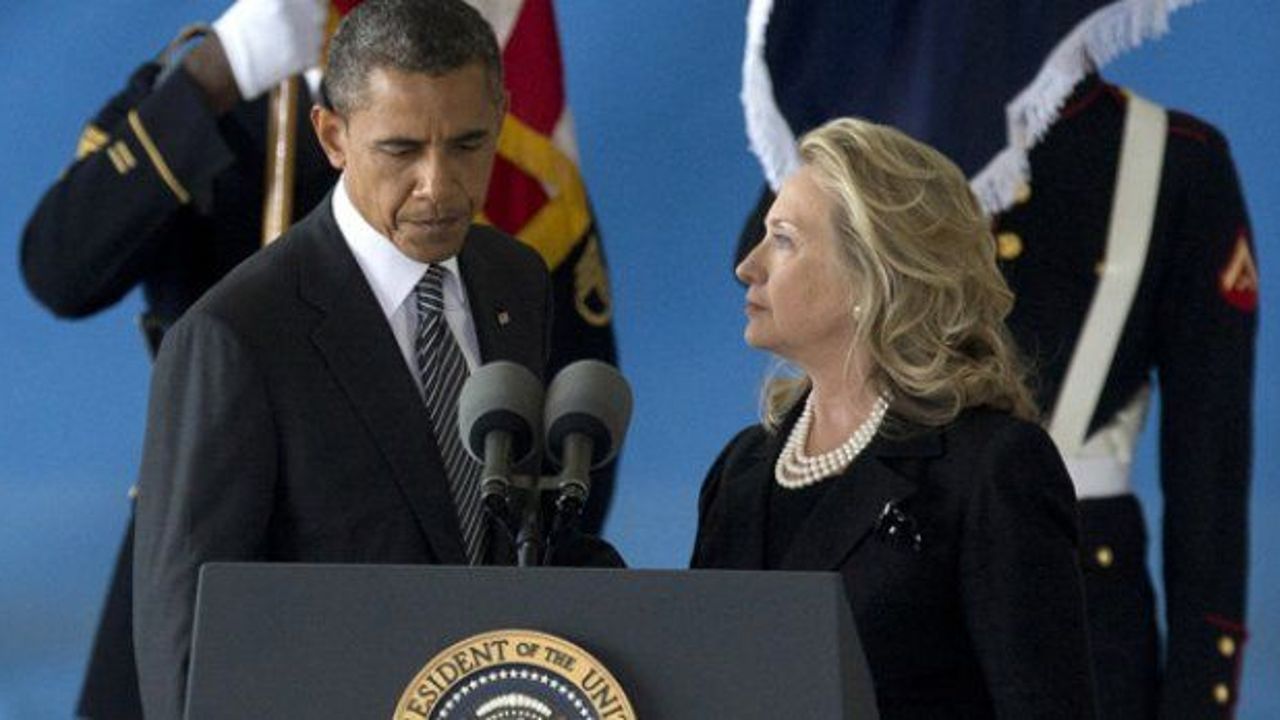'Obama no longer interests Saudis'
The cold reception, received by the President of the most powerful state of the world in Saudi Arabia, could not be overlooked by media and expert community. Although it has been almost 10 days since that date, experts and journalists continue to comment on this topic. All sorts of versions and assumptions are put forward.

I will not focus on why King Salman did not meet Obama at the airport, and why large Saudi channels did not pay due attention to Obama's visit. For it is all a consequence, not a cause. And the reason lies in the systemic crisis that has been brewing between the two countries for a long time.
For decades, Saudi Arabia and the United States acted in tandem on a number of issues in the Middle East. It was a mutually beneficial cooperation, with quite foreseeable goals. In many ways, this partnership has been fostered by, to put it mildly, difficult relations of both countries with Iran. However, the world does not stand still, and at a certain point the primary US strategic interests began to shift towards Southeast Asia. A sharp drop in oil prices, and, as a consequence, the over-saturation of the market, reduced the need of the US economy in the supply of oil from the Persian Gulf region. And more and more pushed the US to focus on Southeast Asia, where Washington and allies (Japan, South Korea, Taiwan) have a tough competition with China ahead. Gone are the days when the Arab monarchies of the Persian Gulf, could declare an oil embargo on the United States, and paralyze the US economy. Now the United States itself export oil and gas. However, the shift of the top priorities does not mean the final withdrawal of the US from the region. The Middle East in general and the Gulf region in particular remain as important areas for Washington. There is still a considerable number of American military, and the Gulf countries, as in the past, buy American weapons worth tens of billions of dollars every year.
US relations with Arab monarchies and Israel have soured more and more, as the United States tried to get closer to Iran, and to solve the nuclear problem of the country. As a result, today, we have a crisis in relations between Washington and Arab countries. Arab monarchies, to which Iran is the main antagonist, are sensitive to the US flirting with the mullahs. Monarchies led by Saudi Arabia believe that the US had betrayed them, and that the allied relations suffered a severe blow.
It should be noted that the Arabs also did not wait around, especially after a crisis in relations with Washington, Saudi Arabia has started a consistent rapprochement with France, Turkey and China, steps had also been taken to rapprochement with Russia. However, the diametrically opposed positions of the countries on the Syrian issue, did not allow establishing an effective dialogue. These countries cannot replace America for Saudi Arabia, but it was a clear message to Washington. In addition, Saudi Arabia, as a reproach to Washington, started a more independent policy in the region. We can say that Qatar has gone the furthest, deciding to place a large Turkish military base on its territory. If we consider that the Turkish army is the second in NATO after the United States Army, then Qatar’s aspiration is understandable. And this is despite the fact, that in Qatar, there are a large number of US military facilities, including the largest American military base outside the United States (by the way, paid for by Qatar).
In addition, relations between the US and Saudi Arabia have been complicated by accusations from US lawmakers on Saudi Arabia’s involvement in the 9/11 terrorist attacks, and in the financing of "Al Qaeda".
In response to these allegations, Saudi Arabia threatened to sell assets in the United States, amounting to 750 billion dollars, in the case of adoption of a law on the accountability of the kingdom. Of course all of these turmoil could not add positive dynamics in relations between the US and Saudi Arabia. During Obama's visit to Riyadh, he was shown that he no longer interests the House of Saud. They are waiting for a new president, thereby hoping to fix the situation.
I am inclined to believe that the best option among the participants in the presidential race is a former US Secretary of State Hillary Clinton. There are several reasons, number one, Clinton, unlike, for instance, Donald Trump, has a deep understanding in matters of foreign policy. Number two, Clinton, like her husband, has good connections with the royal family of Saudi Arabia, which also will contribute to the dialogue. Moreover, the allegations that the Clintons are getting funds for their foundation from circles close to the Saudi royal family, also indicates quite close relations.
Also, do not discount the pro-Saudi lobby in Washington. In particular, Saudi positions are strong among the gun and the oil lobbies, which have a fairly large impact and opportunities in Washington. I believe, if Hillary Clinton elected for the US presidency, the Saudis will use both connections with Clinton, and opportunities of pro-Saudi lobby for building a more productive dialogue.
Ali Hajizade, political analyst, head of the project “The Great Middle East”






